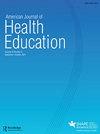Heart Disease Knowledge Questionnaire: Psychometric Properties in Brazilian Adults
IF 0.8
Q4 PUBLIC, ENVIRONMENTAL & OCCUPATIONAL HEALTH
引用次数: 0
Abstract
ABSTRACT Background The assessment of knowledge about cardiovascular diseases through instruments helps to identify gaps and educational needs of the target audience. Purpose To validate and verify the psychometric properties of the Brazilian version of the Heart Disease Knowledge Questionnaire (HDKQ-BR) for adults in Brazil. Methods Cross-sectional methodological study carried out in a Brazilian city with 300 participants. Internal consistency, temporal stability (test-retest) and convergent structural validity were verified. Item Response Theory (IRT) was used to determine parameters a (discrimination) and b (difficulty) of each item and the unidimensionality of the instrument and the differential item functioning (DIF) for sex, education and age. Results The internal consistency of the HDKQ-BR was 0.694. The test-retest reliability was confirmed by the intraclass correlation coefficient (ICC = 0.779). According to the IRT, parameter a was between 0.176 and 1.175 and parameter b between −10.834 and 4.969. Discussion The HDKQ-BR showed unidimensional structure and adequate psychometric performance for its application in populations with the same profile in Brazil. Translation to Health Education Practice To assess the knowledge of an adult population about CVDs is important for improving the health literacy. The study focused on Area I of Responsibilities for Health Education Specialists (Assessment of Needs and Capacity).心脏病知识问卷:巴西成年人的心理测量特性
背景:通过仪器对心血管疾病知识的评估有助于确定目标受众的差距和教育需求。目的验证巴西版成人心脏病知识问卷(HDKQ-BR)的心理测量特性。方法采用横断面方法对巴西某城市300名参与者进行研究。内部一致性、时间稳定性(test-retest)和收敛结构效度验证。采用项目反应理论(IRT)确定每个项目的参数a(歧视)和b(困难),以及工具的单维性和性别、教育和年龄的差异项目功能(DIF)。结果HDKQ-BR的内部一致性为0.694。通过类内相关系数(ICC = 0.779)验证重测信度。根据IRT,参数a在0.176 ~ 1.175之间,参数b在- 10.834 ~ 4.969之间。HDKQ-BR具有单维结构,在巴西具有相同特征的人群中具有足够的心理测量性能。评估成人心血管疾病知识对提高健康素养具有重要意义。这项研究的重点是保健教育专家责任领域一(需求和能力评估)。
本文章由计算机程序翻译,如有差异,请以英文原文为准。
求助全文
约1分钟内获得全文
求助全文
来源期刊

American Journal of Health Education
PUBLIC, ENVIRONMENTAL & OCCUPATIONAL HEALTH-
CiteScore
1.70
自引率
10.00%
发文量
36
期刊介绍:
AJHE is sponsored by the American Association for Health Education of the American Alliance for Health, Physical Education, Recreation and Dance. The mission of the American Association for Health Education(AAHE) is to advance the profession by serving health educators and others who strive to promote the health of all people through education and other systematic strategies.AAHE addresses the following priorities •Develop and promulgate standards, resources and services regarding health education to professionals and non-professionals •Foster the development of national research priorities in health education and promotion. Provide mechanisms for the translation and interaction between theory, research and practice.
 求助内容:
求助内容: 应助结果提醒方式:
应助结果提醒方式:


